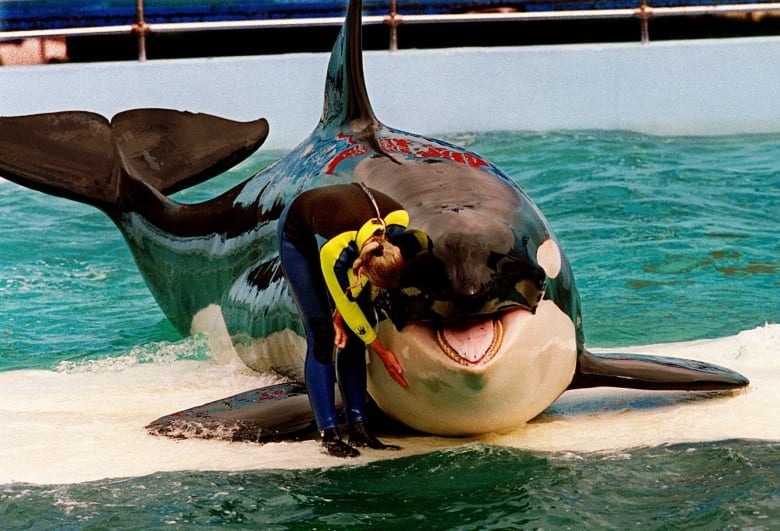Lolita the orca is returning to the sea after more than 50 years in captivity | CBC News
Lolita the orca will soon be swimming in her home waters of Puget Sound in Washington state after more than half a century in captivity.
Friends of Lolita, a not-for-profit organization, and the Miami Seaquarium announced at a news conference Thursday that they have signed an agreement to return the killer whale, also known as Tokitae or Toki, to the area where she was captured within the next 18 to 24 months.
The aquarium, where Lolita has lived since 1970, is now working with the non-profit on a relocation plan.
The killer whale, a member of the L Pod of southern resident orcas that frequent the waters off Washington and British Columbia, has been in declining health after suffering several illnesses in 2021 and 2022.
But thanks to a team of dedicated experts her most recent health and welfare assessment indicated that “her energy, appetite and engagement in daily activities is becoming reasonably stable.”
Pritam Singh, an environmentalist and co-founder of Friends of Lolita, says the relocation will require a high level of co-ordination between different jurisdictions, government agencies and companies.
“But I think we’re up for the task. I think we can do it,” said Singh. “She [Lolita] is a symbol of our recognition that in the past we’ve done things that we shouldn’t have done. We made mistakes. We have to fix the damage we’ve done to this Earth.”

Miami-Dade County Mayor Daniella Levine Cava said at the news conference that the orca’s return is only possible thanks to the efforts of advocates like Jim Irsay, owner of the NFL’s Indianapolis Colts, who is helping fund the relocation.
“The most important thing is Toki’s long-term well-being and together, guided by the experts, we will continue to do what’s best for her,” Levine Cava said.
Details on return still limited
Howard Garrett, president of the board for the Orca Network in Washington state, has been advocating for Lolita’s release for almost 30 years and says Thursday’s announcement is “extremely exciting.”
So far, the details on Lolita’s relocation have been limited, but Garrett believes the whole relocation could cost up to $20 million US. He says the team will need to set up a rehabilitation pen where the killer whale will be provided with food, medical supervision and care.
Garrett predicts the transition back to the Salish Sea will be a smooth one.
“She would be familiar. She would feel that those are the waters she was born and literally raised in, taught how to be an orca by her family,” he said.
“I think she will do just fine.”
But not everyone has been on board with the idea of repatriating Lolita in recent years.
In 2018, Andrew Trites, director of UBC’s Marine Mammal Research Unit, said moving Lolita “could be a very cruel and inhumane thing to do.”
He worries that, given her age, the safe window to bring Lolita home has passed.
For all the latest Technology News Click Here
For the latest news and updates, follow us on Google News.

